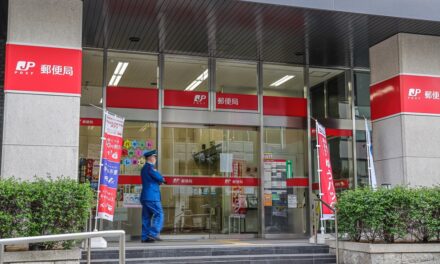
Japan Post “biggest postwar project yet”
Economics czar Heizo Takenaka made a forceful case over the weekend for privatization of Japan Post, saying the key issue was getting rid of the risk factor.
“Unless we clear this issue (of risk), we’d be making the biggest mistake since the end of World War II in terms of system planning,” he said.
Takenaka, the economic and fiscal policy minister, reiterated Sunday that the three services managed by Japan Post must be separated and managed independently to avoid financial disaster.
“The key words here are `cutting risks,”’ Takenaka said in likening Japan Post operations to those of a major bank.
In this case, he cited the giant Tokyo-Mitsubishi Bank, which, he noted, does not operate a door-to-door delivery service like Japan Post does.
“In order for it (Japan Post) to become private, risks from its other operations should be shut out,” Takenaka told a TV Asahi program Sunday.
His comments brought into sharp relief his position that Japan Post’s three services of mail delivery, postal savings and postal insurance should be divided into three companies and operated separately, as opposed to a plan floated among some members of the government to manage the three entities together.
Privatization of postal services constitutes a major plank of Prime Minister Junichiro Koizumi’s reform plans.
Takenaka has said privatization of Japan Post would be the nation’s “biggest postwar financial reform” project.
The Council on Economic and Fiscal Policy is to compile a basic outline for the privatization program by September.
Given the monetary figures involved, this is anything but an easy task. The balance in postal savings at the end of March stood at an eye-popping 227 trillion yen, more than twice the savings in the Tokyo-Mitsubishi and UFJ banks combined.
“The financial business is a special one in that it manages risks,” Takenaka said in a speech in Osaka. “If it fails in managing risks, then its settlement functions would fail.”
Takenaka was speaking at an economic symposium on structural reforms and regional revitalization jointly organized by the Open Faculty Center of Osaka University’s School of Economics and The Asahi Shimbun.
“The reason banks don’t operate supermarkets and convenience stores is because of the need to block risks to the financial services,” he said.
Taro Aso, posts and telecommunications minister, indicated Friday in a news conference that he supports the idea of breaking up postal services into three entities, all of which are to be operated under a holding company.












